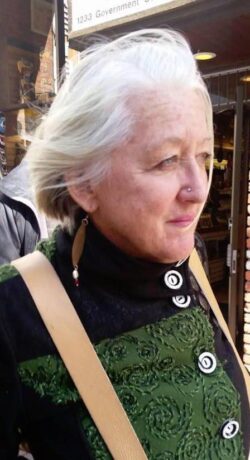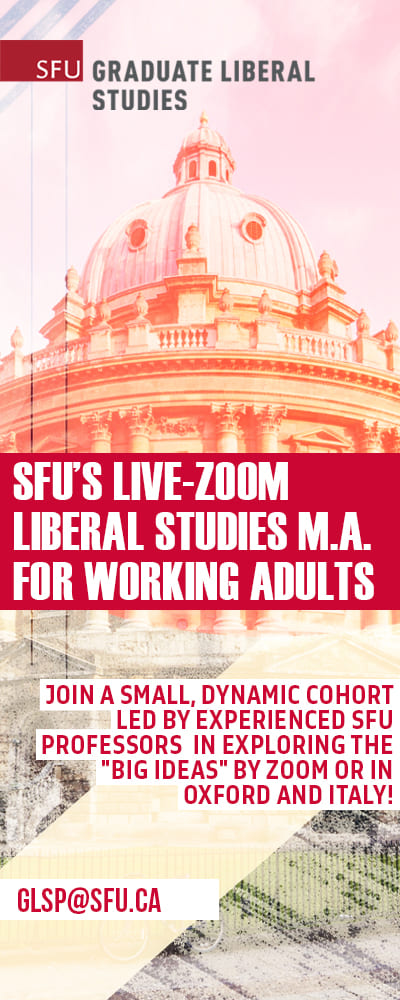1248 A master’s course in endurance
This Is My Real Name: A Stripper’s Memoir
by Cid V. Brunet
Vancouver: Arsenal Pulp Press, 2021
$22.95 / 9781551528588
Reviewed by Linda Rogers
*
 Strippers never have real names, because no one expects to remember them, the “Boys” of the Raj, the dogs of infamy, all of them othered by the entitled children of privilege, when every child knows his or her name is the first thing they own, their identity.
Strippers never have real names, because no one expects to remember them, the “Boys” of the Raj, the dogs of infamy, all of them othered by the entitled children of privilege, when every child knows his or her name is the first thing they own, their identity.
Cid Brunet introduces us right away to the anonymity of public sex, intimacy without identity, the ultimate paradox. The “stage” name is at once protection, an opaque shield, and loss of self, as the neophyte stripper describes her separation from reality: “I am a collection of helium balloons attached by ribbons to my spine. I float up, bobbing safely against the ceiling.”
The sex trade is theatre, home to characters in search of authors, defined by those who pay for hire, their personae assumed at the door to the demimonde where workers can earn more in one hour than a day at McJobs. “I am your fantasy,” they say to every consumer of dream:
I lean back in the cab and recount the cash in my hand. Shocked into silence by making my rent in five hours.
And what brought them there? When I mentored at at PEERS conference, a conference of sex workers a few decades back, I learned the obvious when I interviewed and advised young people from around the world and led workshops in therapeutic memoir writing. The answer to the question that has troubled us since Genesis loaded women with the most venal of sins, which is also the greatest gift, our reproductive power, is that poverty is linked to misogyny. Jane Austen may have been the first writer to acknowledge that even in polite society all women were livestock, value added by the men they marry.

As the world is increasingly cursed with the results of obscene wealth and soul destroying income gaps, more and more young people will be forced into poverty, some unable to afford the basic human right to feed and shelter a family while others are increasingly commoditized, the fast sex equivalent of fast food.
Poverty forces the choice many young people make to do sex work as they are increasingly marginalised. For many it is the only dignity, allowing them to eat regularly and feed those they care about.
We meet “Michelle” at her maiden gig and, as she learns the rules, we do. First, there is her candour about money and the clients, whose own power is undermined by the pathetic need of human estrangement, loneliness.
By her account, “Michelle” had an idyllic childhood, albeit with a deficit she never fully articulates: the secret germ of her need. It has something to do with the balance of power in a society that robs girls of dignity. Power and money are two recurring themes in this book. When she finally tells her mother how she has been earning her living, she declares her intention to subvert the patriarchal system, which has recently had its nemesis in Texas, hopefully a turning point. “I wonder if I’m a whore now,” she writes. “I don’t feel any different, but there is a sense of having crossed over. Even out of breath and overwhelmed, I can taste power.”
In sex work as any other, there are safe parameters, rules about respecting co-workers and clients, and they are intuitive, the diplomacy of competitive selling and the thou-shalt-nots of commerce with one’s own body with which sex workers have complicated relationships.
Michelle describes herself as a puppy or chubby girl. Some clients love handfuls of flesh, most do not.
My eating disorders began in high school and persisted for years before I entered this industry that demands thinness. Those self-destructive behaviours are ubiquitous and encouraged here. I’ve met strippers who eat only Skittles and laxatives, those who only allow themselves one meal post-shift per day, and those who use substances like pre-workout supplements or cocaine to control their hunger.
There are anorexic ballerinas who live on toilet paper. Since Eve was expelled from the first garden, self-punishment by starvation has been the rule for women who conform to unrealistic expectations, and the sex trade is exactly that, fantasy:
Allowing men to project their own eroticized stereotypes onto me is part of what I think of as my job, and even though I try to let their comments affect me as little as possible, direct comparisons between my friends’ bodies and mine are extra difficult.
As we wonder how our minimum wage labour force dissolved in the various serums for pandemic, “Michelle” gives us the answer.
I used to be a dish pig at a fancy restaurant. One time, in peak summer, I was changing garbage cans and found the bottom of one lined with a slick, wriggling pile of maggots and the smell of rotting meat. I took the can to the parking lot and sprayed out the creatures with a hose. Then stuck my arm, pit-deep, into the can to scrub off the leftover slime. At least at the club I’m paid by the song and tipped in cash.
“Michelle” describes the rush of gathering blossoms of paper cash as “growing a garden of roses,” but the roses have thorns. As she wanders in the numb garden of disengagement from feelings, a process accelerated by alcohol and drugs, she hovers “on the lip of a stair” that could be a ladder leaning on air. “It’s livesaving,” she says, “this skill of detachment,” a prerequisite for work she loves and hates, her addiction.

She learns that “sex work is a master’s course in endurance,” requiring an energy she does not always have, but the diary she keeps flourishes with crystalline imagery that makes this book a captivating poetic narrative. Carol Shields, a master prose writer, extolled the desideratum of “writing on a pane of glass,” and this gift for clarity Brunet has in spades, er, diamonds, for example:
I touched the base of the cliff and shivered. The sandstone held grief. On the way home I balanced on the iron tracks while Mira wove in and out of the sumac chasing squirrels. The beauty of the world threatened to grind me into stardust.
What emerges is the profile of one sex worker, which can’t be a stereotype. All stories are the same. All stories are different. The narrator gives glimpses of a normal childhood contaminated by shyness and body issues. Her emotional exhaustion is defined by sore feet from standing, the bane of many female professions from waitress to nurse to sex worker, for whom the greatest kindness is a foot rub and the greatest insult is sex fetishism. As an introvert, she has a daily quota of words, beyond which she runs on empty, except in her writing which expands our awareness of her working life where “Being a woman, sex work makes the most economic sense.” Money, she says, anaesthetizes her swollen feet. But does it? In the end, she finds out that the need for power and money, the gas in her tank, is toxic.
I’ve taught prison workshops, and heard the same refrain about power and money incorporated in one word, “thrill.” “Michelle” tell us she hates being touched by the clients, but she loves the power her naked body has over them. Her feet hurt, her nipples are sore, but she craves the rush that comes from being desired by men she frankly despises:
When I take out my tits, the bar erupts like I’ve scored a touchdown. Their energy feels like an acknowledgment that being the centre of attention for three songs, naked, dancing in seven-inch heels is a miraculous feat.
We learn from her that a vocation sustained by drugs and alcohol is physically and mentally exhausting, and the reader, although as compelled to witness the phenomenal world of sex work as the narrator is to live it, also experiences burnout in this catalogue of highs and hangovers that Brunet has crafted so well, with just enough real love and forest bathing to keep hope alive.
The reader is also mentally depleted by her catalogue of hurt by the time “Michelle” moves her curtain of hair and sees the face with nothing to hide behind in the mirror, her real name. We reach out with her to embrace it.
*

Linda Rogers, a Canadian People’s Poet, has spent the pandemic gathering writing, design, and visual art by her swan sisters, by many creators for the anthology Mother, the Verb, the Swan Sister Treasure Book, which affirms the importance of matriarchy in maintaining the balance of life. Editor’s note: Linda Rogers has also reviewed books by Betsy Warland, Yvonne Owens, Junie Désil, Rob Taylor, Andrea Actis, Grace Lau, Janet Gallant & Sharon Thesen, Philip Resnick, Celeste Nazeli Snowber, Patrick Friesen, Stephen Collis, Colin Browne, Heidi Greco, Liv Albert, Amanda Hale (Mad Hatter), Howard White, Eufemia Fantetti, Patricia Demers, and Amanda Hale (Angela of the Stones) for The Ormsby Review.
*
The Ormsby Review. More Books. More Reviews. More Often.
Publisher and Editor: Richard Mackie
The Ormsby Review is a journal service for in-depth coverage of BC books and authors. The Advisory Board consists of Jean Barman, Wade Davis, Robin Fisher, Cole Harris, Hugh Johnston, Kathy Mezei, Patricia Roy, Maria Tippett, and Graeme Wynn. Scholarly Patron: SFU Graduate Liberal Studies. Honorary Patron: Yosef Wosk. Provincial Government Patron since September 2018: Creative BC
“Only connect.” – E.M. Forster































3 comments on “1248 A master’s course in endurance”